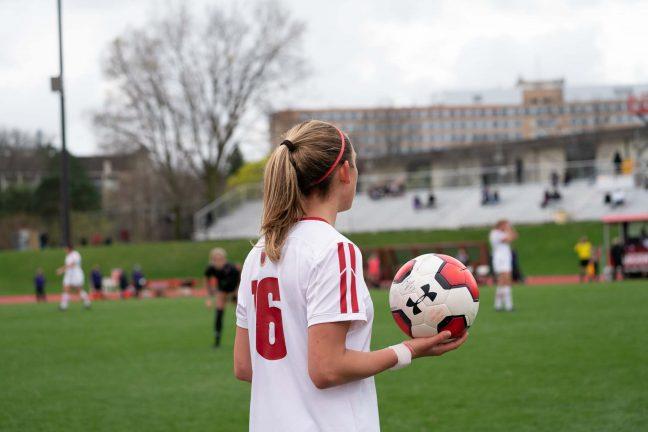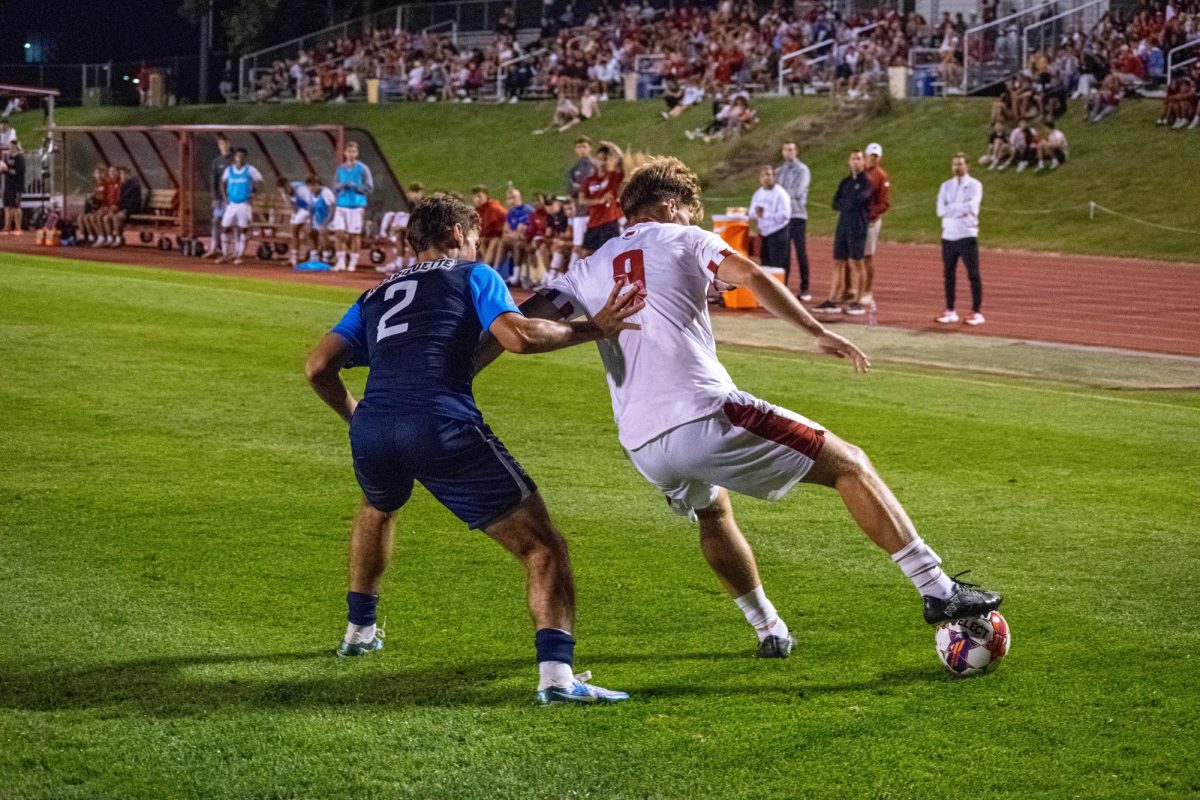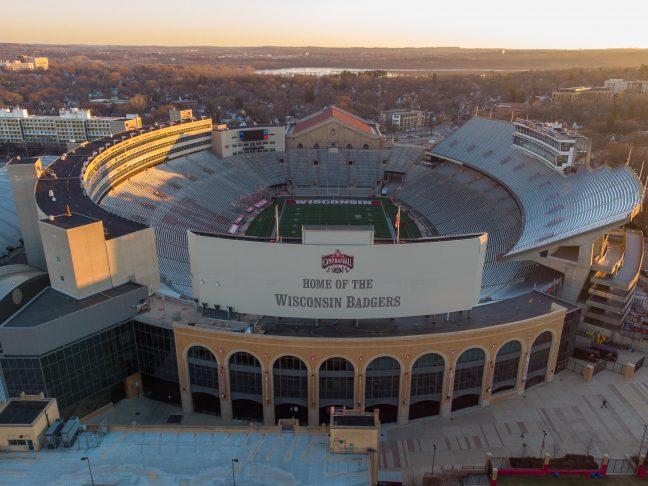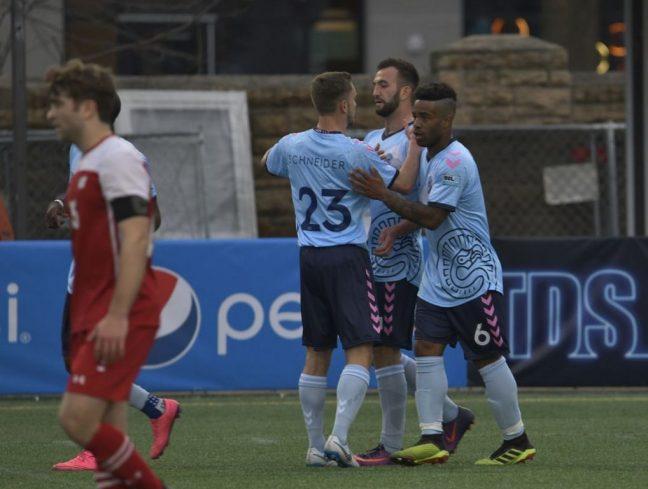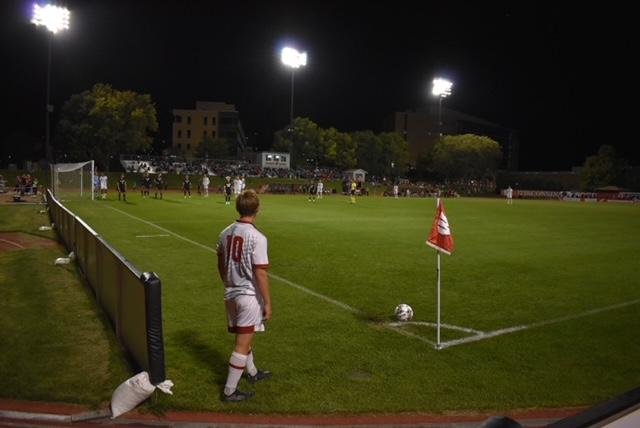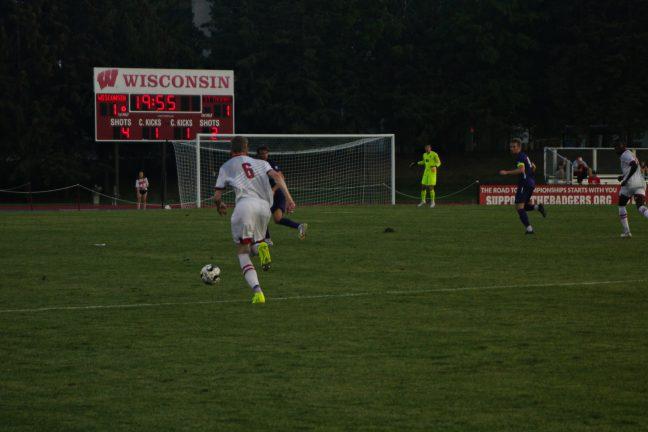Once every four years, billions of people across the planet stop to admire one of the world’s greatest sporting spectacles — the FIFA Men’s World Cup.
With kickoff set for Nov. 20, this marks the first year the beloved tournament will be hosted in the winter due to the extreme summer heat in the host nation Qatar. Yet, this year’s tournament is clouded by controversies that overshadow its five-month delay.
Since FIFA awarded the World Cup to Qatar in 2010, an estimated 6500 migrant workers have died in Qatar. The dire working conditions sparked protests which resulted in the arrest of 60 migrant workers. Among others, these issues provoked soccer fans to call for a boycott of the tournament, and some European cities will abstain from publicly airing the games.
Growing up in Germany, University of Wisconsin Life Sciences Communication Professor Dietram Scheufele supported the German national team in every World Cup. This year is the first World Cup he will refrain from watching the games in light of the “unethical behavior and outright corruption” involved in the Qatar World Cup.
Men’s Soccer: Wisconsin exits Big Ten tournament with loss to Rutgers on penalty kicks
“In Germany when there’s a World Cup and Germany plays, the streets are empty… Most people are glued to the television,” Scheufele said. “So, for a number of people in that culture to say ’no, we’re not going to do this,’ I think it really says a lot.”
UW junior Aran Koob runs the Madison Premier League club, which gathers on weekends to watch games of the English Premier League. They will be gathering for whatever World Cup games they can watch together.
Koob said fans are in a difficult position. He thinks fans should minimize interactions with the tournament so it won’t draw as much profit, like avoiding subscriptions services and paid articles, but boycotting will be difficult for many fans.
“I think it’s hard to ask average fans to do that [boycott],” Koob said. “It is an extreme human rights abuse. It’s just, the World Cup is a major deal. It’s a tough situation for everyone.”
Men’s Basketball: Badgers win ‘Brew City Battle’ against Stanford Cardinal
UW senior Alan Cortez grew up in Brazil, where watching the World Cup was deeply ingrained in the culture. He said supporting Brazil in the World Cup represents more than just the sport, but a symbol of national pride across all Brazilians.
In a normal year, Cortez would watch as many games as possible — even the smaller, less competitive ones. But because of the controversies, he said he will only be watching Brazil in support of his nation and not the tournament as a whole.
“I respect and I understand people who are boycotting it,” Cortez said. “I don’t know if I can boycott Brazilian games, just because it’s such a big thing for me and for my culture, but I have so much respect for them for doing so.”
Director of the Global Legal Studies Center at UW Sumudu Atapattu said this is not the first time a major sporting event has come with controversies around the hosts. She pointed to the 2022 Beijing Winter Olympics, which some countries boycotted diplomatically due to human rights abuses in China.
Atapattu said the more these human rights violations go unnoticed, the worse they become.
“I think we need to bring attention to these issues and not turn a blind eye. As consumers and as spectators of the sports, I think we have a big responsibility not to turn a blind eye and to discuss these issues,” Atapattu said.
Men’s Hockey: Badgers swept at Michigan State, drop to 0-6 in Big Ten play
Among the human rights controversies, there are many question marks surrounding the way Qatar plans to treat fans. The Qatar government will require visiting fans to download data tracking apps. Additionally, early signs point to poor conditions in one of the newly constructed stadia with few bathrooms, poor air conditioning and minimal access to water.
Another concern about the host nation is their strict laws regarding same-sex relationships. Fans in the LGBTQ+ community have been protesting the Qatar World Cup because of the nation’s laws which discriminate against the LGBTQ+ community. For example, an ambassador of the World Cup called homosexuality “damage in the mind” in an interview with German news outlet ZDF.
While the tournament has laid out policies that will protect peaceful protests for LGBTQ+ rights, some question whether these protests will be influential at all. Some nations’ captains will be wearing rainbow armbands protesting against discrimination of the LGBTQ+ community.
Scheufele said these protests may get five minutes of fame, but it will be more influential if the big name players in the tournament like Lionel Messi and Christiano Ronaldo speak out.
Spectators should protest but in a smart and careful way, Atapattu said. Because of the Draconian laws, people can get arrested for things that are taken for granted elsewhere.
“We should protest and use this platform to show you know how many migrant workers have died in relation to this event, and how migrant workers are treated in general. That’s a big problem, not just in Qatar, but in other parts of the world as well,” Atapattu said.
Cross Country: Wisconsin off to strong start in postseason competition
Despite the controversies surrounding Qatar, local fans are excited to watch the U.S. national team in their first return to the tournament since 2014. Scheufele pointed to exciting players like Christian Pulisic, Gio Reyna, Weston McKennie and more who are having successful club careers in Europe.
Koob is greatly looking forward to the group stage game between the U.S. and England Nov. 25. He hopes the U.S. will do well in the tournament and advance out of the group stage. He said this year is special because it will be the last world cup for many big players, like Messi and Ronaldo.
Besides rooting on Brazil, Cortez looks forward to seeing which nation will step out as a “zebra” — an underdog team which outperforms expectations. He thinks Japan’s team is a potential zebra to watch out for.
Among fan excitement for the biggest tournament in the world, the downsides cannot be overlooked. Both Scheufele and Cortez said the winner will come back with some sort of asterisk.
“It took a little bit of the innocence of the game away from the game… I think this [World Cup] is just just taking the shine off of [the game] and really leaving a bad aftertaste.” Scheufele said.


